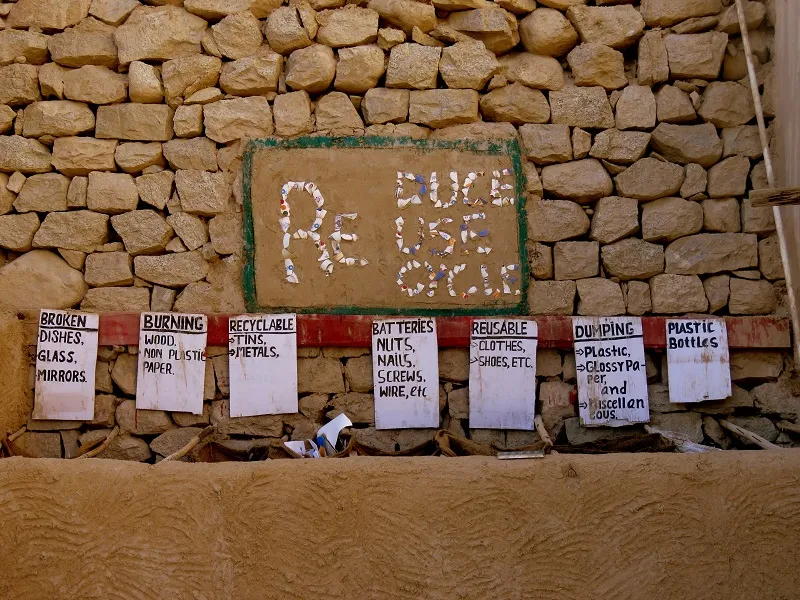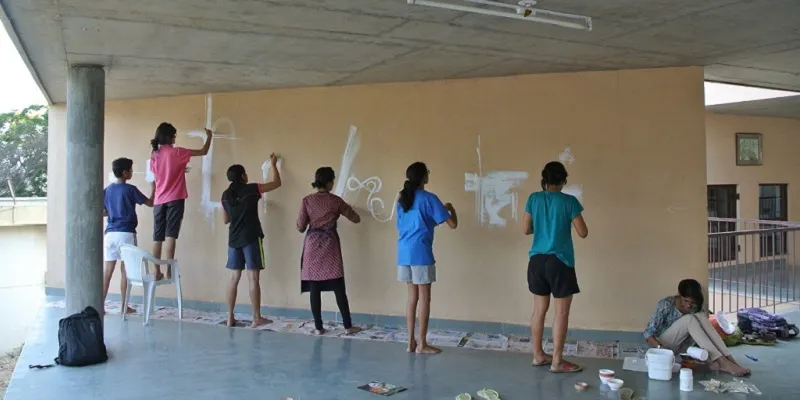Want your child to get an education that goes beyond textbooks? Here are 11 alternative schools in India
Stemming from a deep dissatisfaction with mainstream education, these schools shun rote learning, and provide their students with holistic, multidisciplinary learning
'Alternative schooling' is an umbrella term used for schools that typically step away from the conventional methods of teaching. Risen out of a general dissatisfaction with the traditional mainstream education system, these schools either follow a certain pedagogical philosophy, or political or scholarly orientation. In recent times, there is an increase in both, the quality as well as the number of alternative schools in India. The alternative system of teaching is not entirely new in India; the Vedic and gurukul systems of educations were based on the principle of acquisition of occupational skills, cultural and spiritual enlightenment in an atmosphere that encouraged rational thinking and reasoning among the students. However, the colonial era saw the focus being shifted to only English as the language of instruction and following a common curriculum across schools. In the early twentieth century, people like Rabindranath Tagore, Jiddu Krishnamurti, Sri Aurobindo, Maria Montessori and Walden started models of alternative schools as a response to the drawbacks of mainstream education system.
Following are some of the many alternative schools currently operational in India:
1. ISHA HOME SCHOOL – COIMBATORE
Located amidst the tranquil surroundings of the Velliangiri mountains near Coimbatore, Tamil Nadu, Isha Home School was founded by Sadhguru in 2005. Its foundation is on his philosophy that education should not only be about making the child’s mind capable of razor-sharp perception or of knowing life in its full depth and dimension, but also about expanding the horizons of human experience and becoming inclusive. Isha Home School aspires to blend the aspects of ‘home’ and ‘school’ with a dynamic curriculum, free from the pressures of examinations. The school says its greatest asset are its dedicated and talented faculty who ensure a symbiotic learning process.
2. SECMOL - LADAKH

The Students' Educational and Cultural Movement of Ladakh (SECMOL) was founded by a number of young Ladakhis who, after having returned from university, could comprehend the difficulties faced by the local students with modern education, their lack of focus and the cultural confusion. The organisation was founded near the village of Phey in the Indus Valley in 1988 to reform the government school system, helping village students in their education, awakening youth to the problems stemming from inappropriate and insensitive schooling, producing related videos and radio programmes, and designing and building solar-heated eco-friendly buildings. They have successful carried out reformations like introducing locally relevant textbooks, reducing the language confusion, and increase the accountability of teachers. Two of its main approaches is to have child-centred, joyful and meaningful learning instead of “chalk, talk and stick”, and to develop an understanding of the educational problems in Ladakh, and teachers’ role in the solution.
3. RISHI VALLEY SCHOOL – ANDHRA PRADESH
Jiddu Krishnamurti’s teachings to include developing an appreciation for the environment, art and music, and athletics, in addition to traditional subjects in the curricula are the foundational basis of this school. The philosopher founded the school in his birthplace in the town of Madanapalle, in the south Indian state of Andhra Pradesh. The school has a holistic approach to education in the spirit of Krishnamurti's pedagogical vision. Community service and extracurricular activities are part of a student's schooling, as are discussions, assemblies and club meetings. Rishi Valley is nestled in an ancient valley under the Rishikonda Hill where, as folklore has it, sages, or 'rishis', used to meditate. The school derives its name from these legends.
4. SHIBUMI SCHOOL – BENGALURU
Shibumi School is based on J. Krishnamurti’s philosophy as well. The school offers a learning environment couched in the spirit of freedom and cooperation, in the movement of self-knowing through dialogue and observation. Based in the Somanahalli village in the outskirts of South Bangalore, the school does not have residential facilities as of now but intends to acquire its own campus soon.
5. SAHYADRI SCHOOL- PUNE

Sahyadri School is located on Tiwai Hill, a plateau 770m above sea level, overlooking the Chas-Kaman Dam in Pune. The school, while not encouraging competition in the form currently accepted by society, endeavours to create an atmosphere where students can excel. Classes are intentionally small to provide close contact between teacher and students. An expectation of courtesy, kindness, and mutual respect helps to create an atmosphere where students can take the initiative required for active learning.
6. MIRAMBIKA, FREE PROGRESS SCHOOL – NEW DELHI
The school follows the philosophy of Sri Aurobindo and The Mother and is located in the Sri Aurobindo Ashram campus in New Delhi. The philosophy on which its foundation is based is that each individual comes into life with an evolutionary purpose and corresponding potentialities and that educating means drawing out this potential. Respect for the individual, harmony in diversity and a freedom that asks for an inner discipline are components of the school culture. It also trains educators from all over India.
Mirambika also has a research wing that provides necessary inputs for further development of the school, teachers' training centre as well as the resource centre.
7. ABHAYA SCHOOL – HYDERABAD
Abhaya was founded in June 2002 in Rangareddy district, Hyderabad. Its functioning is inspired by the Waldorf pedagogy, which integrates the arts, sciences and humanities, in an age-appropriate manner, during the three major stages of child development – early childhood, primary years and adolescence to young adulthood. There are a number of schools following this curriculum all over the globe. Individual teachers and schools have varying degrees of autonomy in determining curriculum content, teaching methodology and governance, based on the local regulations, social/cultural environments and economic statuses of different countries. It believes intelligence has more to do with the harmonious working of the hands, heart and head, than learning by rote.
8. THE HERITAGE SCHOOL – GURGAON, ROHINI, VASANT KUNJ
The Heritage School follows the philosophy of experimental learning. It strives to provide space to be, learn and grow to all its members by offering them the freedom of choice in learning and doing, without compromising the rigour and discipline of learning. The school lets the students grapple with a problem, issue or concept using all their senses. The learning experience thus becomes multi-dimensional, and an internal, cognitive, sensory and emotional process. The children examine their learning critically and creatively.
9. MARUDAM FARM SCHOOL – TAMIL NADU
Marudam Farm School was founded in 2009 by a community of students and teachers of different cultural and social backgrounds from around the world. It is located in Thiruvannamalai. The curriculum gives equal importance to both Tamil and English. The students are involved in activities like afforestation, organic farming and in building an intimate relationship with nature. A lot of importance is given to arts and crafts, physical educating and sports as well. They aspire to have an education to bring about sensitive and intelligent human beings.
10. CENTRE FOR LEARNING – BENGALURU
Centre for Learning focusses on nurturing the senses and sharpening language and numerical skills of the students. The children are exposed to a wealth of experiences, a great many of them being linked with the natural world. The projects are interdisciplinary and emphasise an exploration of the world around in various ways. Children are trained in academic and critical thinking skills, alongside the nurturing of their artistic inclinations and physical abilities. The students are introduced to abstract concepts in various disciplines, and are encouraged to examine, clarify and test ideas. They learn subjects with more rigour. The teachers keep two factors in mind: that each child only needs to reach his or her level of excellence, and that a basic grounding in all subjects is given to each child regardless of talent or aptitude.
11. THE SCHOOL, KFI- CHENNAI
One of the oldest and most popular schools in Chennai, Krishnamurti Foundation India’s The School began in 1973 at Poes Garden and moved to Damodar Gardens of The Theosophical Society in 1979. The teachers of the school are drawn together into an exploration of the teachings of J Krishnamurti. This exploration gives rise to structures at school, the learning processes and the surfacing of new areas of work. The School is affiliated to Council for Indian School Certificate Examinations at New Delhi and the students appear for the ICSE and ISC in Classes 10 and 12 respectively.
There are many more efforts beyond these as well in India and if you'd like to discuss or know more, feel free to drop in a comment or write to us at [email protected]
Which domain name would you choose for your website? Click here to tell us.







